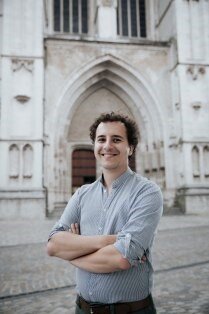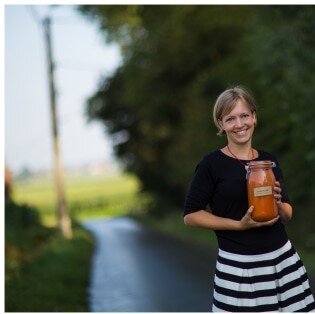Young UAntwerp researchers receive starting grants from the European Research Council
Three young scientists from the University of Antwerp will receive ‘starting grants’ from the European Research Council. These are amongst the most prestigious grants that a researcher in Europe can receive. This will shift the research of historian Jeroen Puttevils, bioscience engineer Sarah Lebeer and immunologist Benson Ogunjimi into high gear.
The European Research Council (ERC) is awarding 408 ‘starting grants’ to young scientists, amounting to a total of €621 million. Of these grants, 10 will go to scientists affiliated with Flemish universities and research institutions. The Vrije Universiteit Brussel (VUB) and the Flemish Biotechnology Institute (VIB) will receive one each, Ghent University will receive two, and KU Leuven and the University of Antwerp have three winners each.
“An extremely fine result”, comments Prof. Ronny Blust, Vice-Rector for research at UAntwerp. “It also provides direct evidence that the scientific research conducted in Antwerp is of an international level.” The three winners from Antwerp are from three different domains: history, bioscience engineering and medicine. The grants will allow the scientists to take their research to a higher level, including by recruiting new doctoral researchers.

The research project of Jeroen Puttevils (History Department) is entitled Back2theFuture: Future expectations and actions in late medieval and early modern Europe, ca. 1400 - ca. 1830. “Psychological research has demonstrated that we think about the future every 16 minutes”, explains Puttevils. “I will be investigating whether the ways in which we think about the future are subject to change over time. For example, did people in the 16th century think about the future in the same way, and did they think that they would be able to influence the future in one way or another?”
“We are going to read and analyse 15,000 letters from merchants and their correspondents from the 15th through the 18th centuries. Merchants could have been regarded as future professionals, given that their profits were determined by their judgement concerning what would happen with prices, volumes, markets and conditions in the future. We will read and transcribe the letters, in addition to working with text-recognition software. For example, we will be able to determine whether references to risk, fate, God and the saints appear more or less frequently as we move from the Middle Ages to modern times’.”
Where do the lactobacilli come from?
Microbiologist Sarah Lebeer is affiliated with the Department of Bioscience Engineering. In the coming years, she will be investigating the evolutionary history and ecology of the lactobacilli. “These bacilli play a crucial role in women’s health”, notes Lebeer.

Lactobacilli can also be found on the skin and in the upper respiratory passages, as well as in animals, plants and crops. In most of these habitats, they serve a useful function. “Various types of lactobacilli are found in different places, but they all share an evolutionary kinship. To date, these aspects have not received enough attention in scientific research. In the coming years, my team and I will be examining lactobacilli in an innovative manner, thereby constructing a compete overview of the potentially positive effects.”
How do immune cells evolve?
The third winner from Antwerp is Benson Ogunjimi, who is affiliated with the Faculty of Medicine and Health Sciences. As a paediatrician, he concentrated on immunology, and as an epidemiologist, he specialised in mathematical models for the spread of infectious diseases. For his ERC project, he will be combining these two specialisations. Ogunjimi has even coined his own term: cellulo-epidemiology.
“I will be conducting extensive research on the evolutionary process that immune cells undergo under the influence of parameters like age and sex. This will give us a much better idea of how the immune system develops, which will obviously have positive effects on healthcare.”